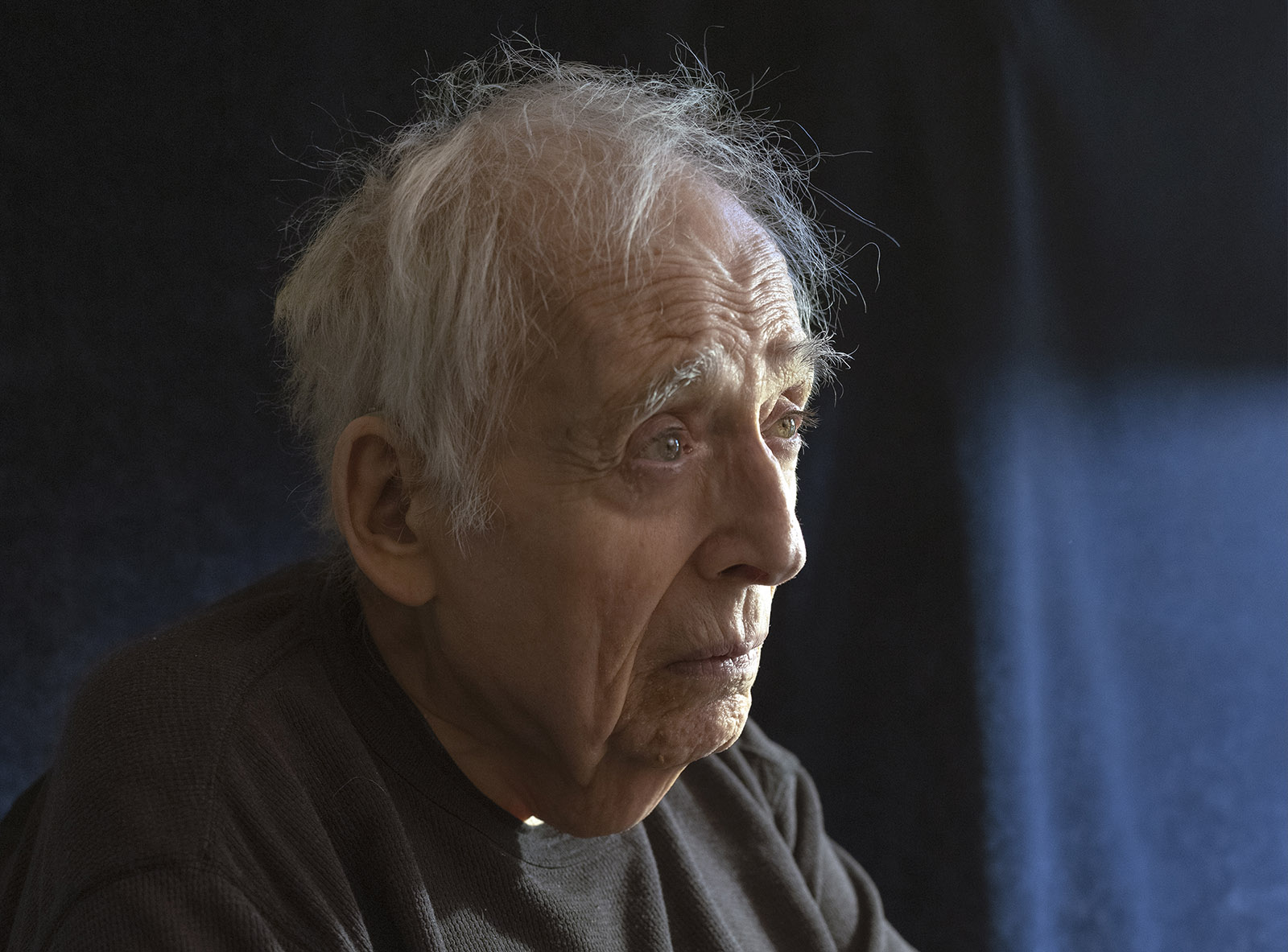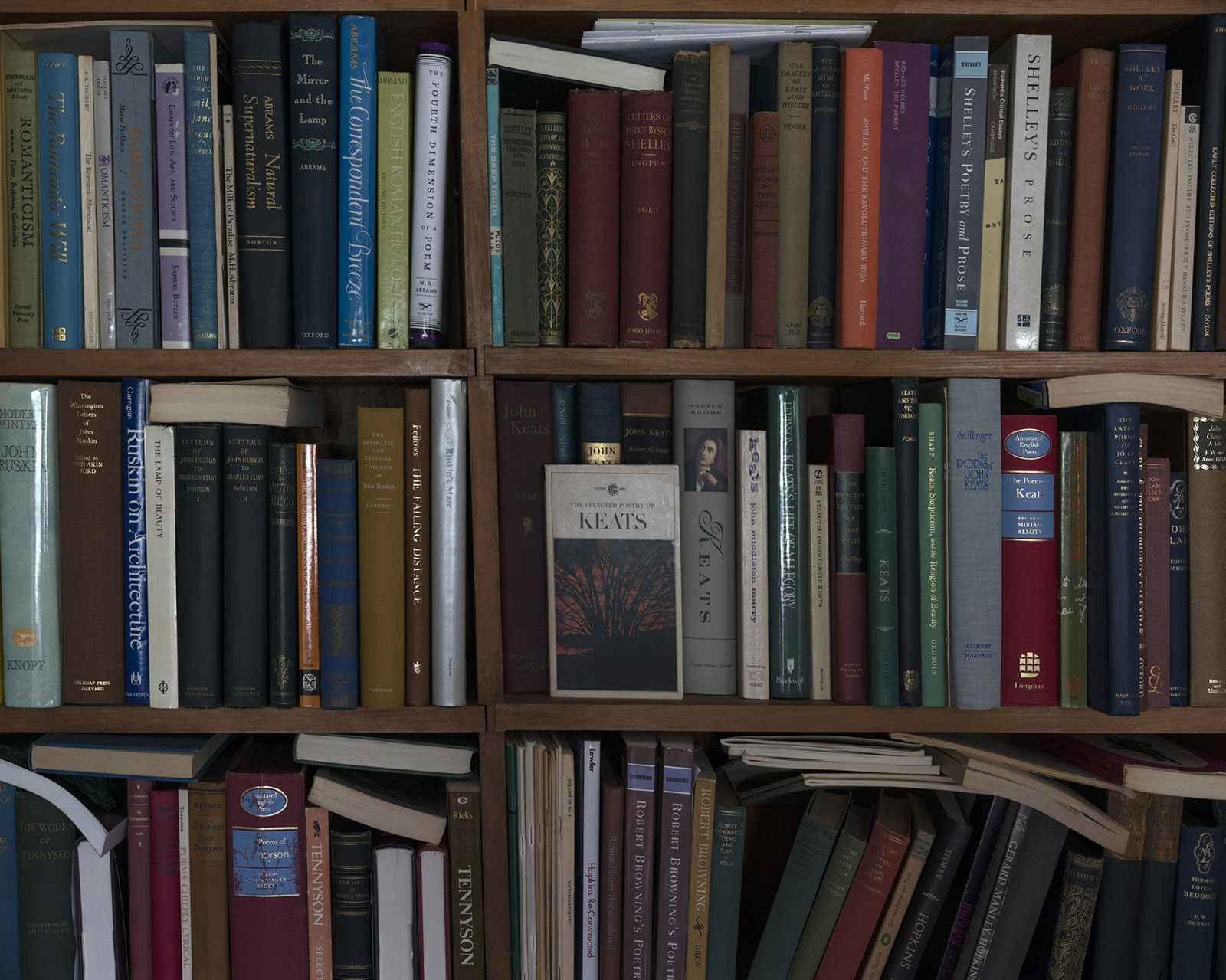When my wife, the photographer Tanya Marcuse, and I went to visit Harold Bloom at his home in New Haven in June, for Tanya to take his portrait, we didn’t plan to spend time in his study. As we knew from a previous visit, Bloom was too weak to move far from the cluttered dining room table where he both worked—writing, or rather dictating, several books at any one time—and received the many admirers, protégés, and students who paid him visits, at his invitation. His study was far away, up two flights of stairs that Bloom had not been able to climb for several years. But he insisted we go there, to see a William Blake watercolor hanging on the wall.
We were Bloom’s only company that morning, apart from his caregivers; his wife, Jeanne, was out shopping, and he seemed lonely at his table, a king without a court. Perhaps his stream of well-wishers had dried up, frightened by his extreme frailty. Bloom’s hands were skeletal and palsied, their skin nearly translucent; yet his eyes, and his mind, were sharp. He willingly, even proudly, posed for Tanya’s portrait camera, insisting that his chair—into which he was strapped by a safety harness—be repositioned to give a better angle. Then, he sent us upstairs.
In the wood-paneled room on the house’s third floor, where Bloom had studied and written for decades, we took stock of a life of letters such as few have led and fewer still, in the screen-ridden ages to come, will lead again. Every shelf swelled with the works of matchless poets and timeless critics; thinner volumes were wedged sideways above the serried rows. Stacks of more recent volumes lay about the floor; a quick glance revealed that most, perhaps all, had been lovingly inscribed by their authors. A plain cardboard box marked “Articles on Harold” contained piles of newspaper and magazine profiles. The faded Blake print was nearly lost amid a welter of words, words, words.
Across the hall were two small rooms, one an ancient bathroom, another a bedroom likely not slept in for years. We wondered how hard it must have been for Bloom to abandon this floor, when his strength would no longer allow him to reach it. By then, as we knew from a daughter of ours who’d studied with him, his mind was itself a library, containing vast stretches of Shakespeare, Stevens, Donne, Dickinson, Bishop, and many others. He needed no books to teach English poetry; he quoted at length, from memory, passages he had lived with for decades. A cadre of literature students, whom he addressed as “children,” met in his home for these virtuosic classes once his physical decline had immobilized him. Some found his manner patronizing or patriarchal; his habit of praising women’s looks made many squirm, and more serious allegations have been reported. But no one could deny his critical insight.
Back downstairs in the dining room, Bloom inscribed for us one of his latest volumes, an entry in his four-part series on “Shakespeare’s Personalities.” As his shaking hand struggled to sign his name, I thought of the line from As You Like It describing extreme old age: “Sans teeth, sans eyes, sans taste, sans everything.” Yet Bloom, at eighty-nine, still had his teeth and vision, and his taste—his appreciation of great verse, especially—seemed only to grow with the passage of time. His life did not end in “second childishness and mere oblivion,” the fate of senility forecast in that play, but in clarity, knowledge, and grace.




